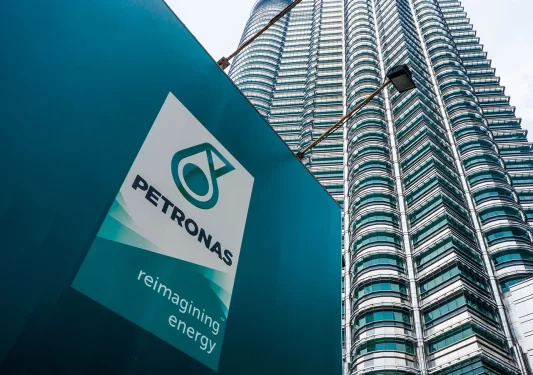By Xavier Kong
AEON Co (M) Bhd believes that integration is a key step towards staying relevant as the retail landscape evolves in the country.
According to Poh Ying Loo, executive director of AEON, the group stands as the only integrated entity in the Malaysian market that serves as a mall, department store, and retail and supermarket operator.
“A lot of players are either mall operators, or retail operators, or supermarket operators, or department store operators. AEON is a group that takes an integrated view to those, and we are all of those at the same time,” he says.
By having a supermarket player and specialty stores as anchor tenants for a mall, Poh tells FocusM that AEON sees better tenant mixes, as there is confidence that the anchor stores will drive footfall and traffic.
This appears to be working as well, considering AEON is looking at an average occupancy rate of 90% for its malls, compared to the industry average of 79%, according to Jeff Lye of TA Securities.
“Despite a challenging market for AEON’s property management (division), we understand that the group has a commendable average occupancy rate. This is a typical reflection of AEON’s capability in leveraging on its strong branding in managing family malls,” says Lye.
When asked about this, Poh notes that having a property management arm as one of its core businesses gives it a competitive advantage over its rivals in the retail segment.
“The retail landscape has evolved from 1985, when AEON was first invited to Malaysia to organise the retail industry. There is a need to stay relevant, and we do that by being a one-stop destination as a value proposition to our customers,” says Poh, sharing that the retail sector in Malaysia is a competitive market.
He notes that supermarkets used to be traditional, selling only household goods and groceries. In a move to keep up with the needs of consumers as the retail landscape changes, supermarkets are now complemented by ready-to-cook and ready-to-eat products.
AEON is also moving towards a more interactive tenant mix, having services such as banking and amusement, in line with the move to have its malls become one-stop destinations.
Gan Huan Wen, analyst at Hong Leong IB, believes this will revive the group’s retailing division moving forward, following a dip in its net profit in the third quarter of its 2019 financial year. AEON reported a net profit of RM10.7 mil, weighed down by higher taxes and operating expenses.
Renovations and refurbishment
Poh also mentions that the property management arm of AEON is moving towards a thematic refurbishment of its malls, as part of the group’s response towards the competitive nature of the retail market.
The refurbishment of its Taman Maluri branch in Cheras, Kuala Lumpur, is but the latest in its efforts, with branches at Queensbay Mall in Penang, Mid Valley, Sunway, and Bandar Utama in the Klang Valley, and Tebrau City in Johor having been refurbished as well.
The refurbishment exercise has also been cited as a weight on the group’s retail segment earnings, with Nabil Zainoodin, analyst of MIDF Research, noting that, while the newly renovated and newly opened stores have contributed to strong growth, “the higher growth was impacted by the refurbishment and maintenance works at existing stores”.
To date, AEON has 35 outlets in Malaysia, with 28 of the malls they are in operated by the group. There are also 74 Wellness stores, which stand as the group’s pharmacy brand, and 42 Daiso stores as well.
Moving forward, Poh shares that AEON will be focusing on refurbishment, as well as the opening of the group’s MaxValu Prime supermarkets, of which six have already opened their doors. These stores, according to Poh, will function as neighbourhood department stores, and will feature a higher assortment of perishable goods.
Leveraging technology to complement physical presence
Poh acknowledges there is no denying the presence and strengths of specialty stores and e-commerce, of which the group has its own piece of the market as well.
Previously, AEON had attempted to run its own e-commerce arm under the brand Shoppu, where the group operated an online marketplace.
“Unfortunately, we found Shoppu to be unsustainable in terms of financials. Now, we are working with partners such as HonestBee, HappyFresh, and Shopee to maintain our e-commerce presence,” explains Poh, who believes that brick-and-mortar stores still have a place in the retail industry, despite the advent of e-commerce, stating that the two can be complementary.
Brick-and-mortar stores need to stay in the retail environment, according to Poh, stating that consumers have their own preferences. He points to the case where there are still consumers who want to be able to handle the items they wish to purchase, especially for big-ticket items.
He also urged retailers to put technology to good use to complement offline services and products, citing the increasing connectivity of the consumers of today and the importance of a community’s opinion on a brand, which can be shaped by way of social media and an online presence.
This omnichannel strategy, where multiple channels of communication are coordinated and orchestrated to work in tandem, is part of AEON’s move to digitalise retail.
“As a retailer, you can choose to ignore this, but I don’t think that is a good strategy,” says Poh, who adds that the younger generations are more digital-native, with social media able to become a constant source of information.
It was also noted that, in turn, turning towards omnichannel marketing could lower costs through efficiency, as “media costs could be much higher, otherwise”.
Towards 2020
As the year draws to a close, AEON braces itself for headwinds moving forward.
“Consumer sentiment is likely to remain soft, as a result of the increased cost of living not being addressed properly, and this is exacerbated by the weakened ringgit, not to mention the impact of political issues, both internal and external, causing uncertainties and wariness among consumers, especially for big-ticket items,” says Poh, adding that the food and beverage segment should be relatively untouched, since “everyone needs to eat”.
Poh points to the trade war between the United States and China as the external cause for concern, while noting that internal issues stem from the need for the government to address the concerns of the people.
“Bread-and-butter issues such as the cost of living, minimum wage, and the unemployment rate among graduates need to be addressed properly,” shares Poh, noting that the actions taken over these issues will strongly impact the retail industry, with better options benefiting the industry, while failure to address the issues properly will see the industry facing challenging times instead.
He cites the example of the implementation of the Goods and Services Tax (GST) in 2015, where before the implementation, sugar and petrol subsidies were already dropped. The implementation of the tax placed a burden on consumers.
AEON’s shares closed at RM1.42 on Dec 18, with analyst recommendations coming in with five buys and three holds. – Jan 2, 2020









